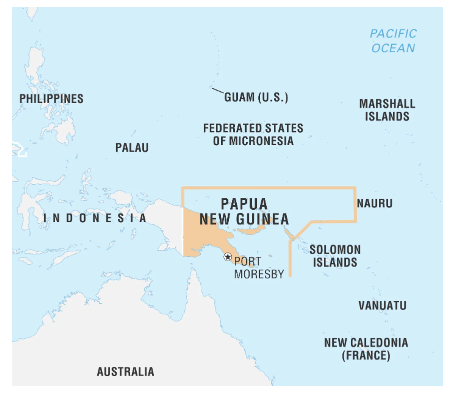15 Nov 2024 15:33:15 pm
Tags : Papua New Guinea

Topic: Oceania
Why in the news?
Source: Down To Earth
About Papua New Guinea:
Convention on Biological Diversity:
|
0 Comments

© 2026 Catalyst IAS All Rights Reserved.